Nouvelles
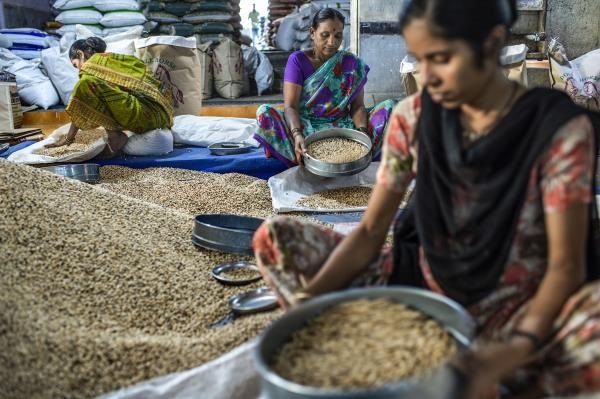
Séries COVID-19 / Amélioration de la conservation et de la disponibilité des légumes secs en réduisant les pertes après récolte
20/04/2020
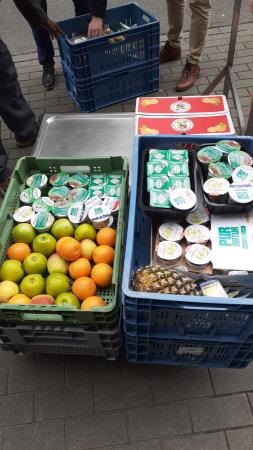
COVID-19 Series / Identifying and addressing the threats against food recovery and redistribution
14/04/2020
Many communities and vulnerable individuals rely on foodbanks and other food recovery and redistribution charities to ensure they have access to enough food to build resilience in their communities, reduce food insecurity and contribute to healthier diets.
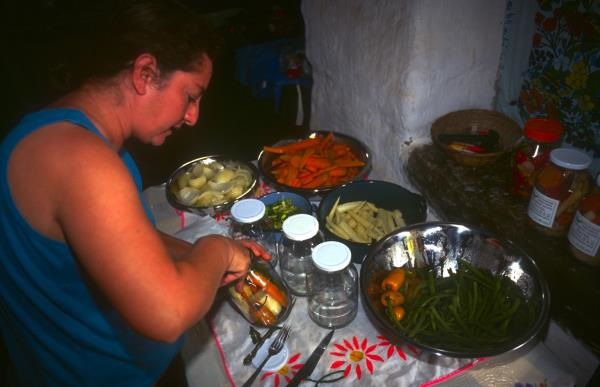
Séries COVID-19 / Conseils pour conserver les fruits et légumes afin de réduire le gaspillage alimentaire et d’améliorer leur durée de conservation
06/04/2020
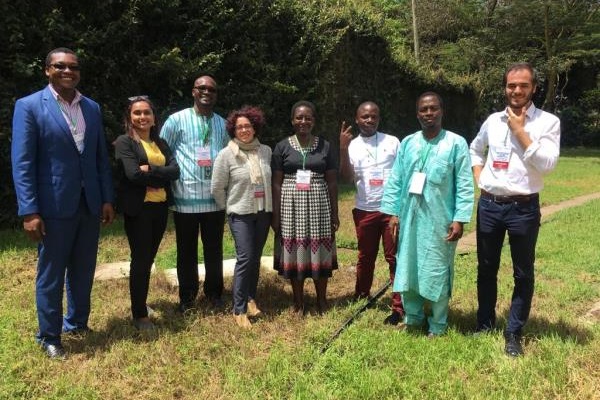
Leçons tirées de l’exercice de Capitalisation d’expériences (CAPEX) de la Coopération suisse (DDC) sur les programmes de gestion de l’après récolte en Afrique subsaharienne (ASS)
30/03/2020
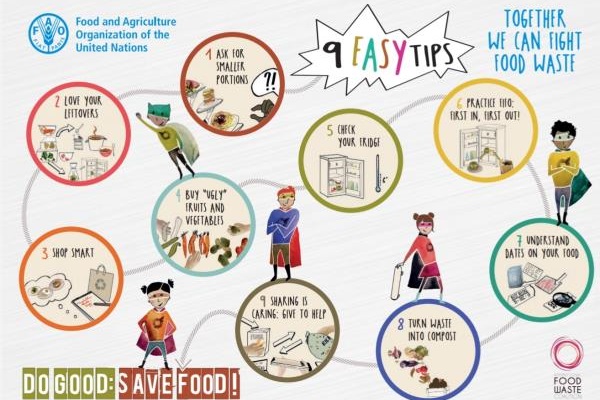
Pendant la période COVID-19: 9 conseils pour réduire le gaspillage alimentaire
25/03/2020
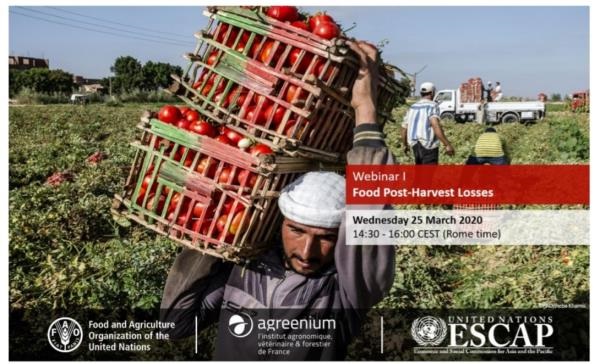
Webinaire technique - Systèmes alimentaires et nutrition durables: pertes alimentaires après récolte
24/03/2020

FAO and Kyoto University partner to reduce food waste
20/01/2020
A pilot project implemented by Kyoto University in 2019, aimed at raising awareness on food waste in canteens on the campus, and enhancing the knowledge and engagement of students in reducing food loss and waste, determined that approximately 20 per cent of food is wasted in canteens on campus...

FAO welcomes global recognition of fruits, vegetables, tea and food loss and waste
20/12/2019
19 December 2019, New York/Rome - FAO welcomes today's decision by the United Nations to create two new international days and one international year devoted to issues directly related to food and agriculture.
The UN General Assembly adopted resolutions designating 2021 as...

RECOMMANDATIONS POUR LA PRÉVENTION DES DÉCHETS ALIMENTAIRES
17/12/2019

Second International Conference of the Ethiopian Society of Post-harvest Management (ESPHM)
13/12/2019
In occasion of the National Postharvest Week, about 120 participants attended the two-day Second International Conference of the Ethiopian Society of Postharvest Management (ESPHM) held from 6 to 7 December 2019.
The Ethiopian Ministry of Agriculture, Ethiopian Society of Post-Harvest M...
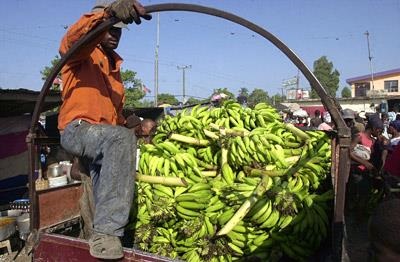
FAO and INCATEMA partnership to support small island nations in the Caribbean
13/12/2019
The new partnership will strengthen small island nations' efforts to grow more food, avoid food loss and waste, use already scarce natural resources more sustainably, and be better equipped to withstand the impacts of climate change to which they are particularly prone.
Through this new...

Global launch of SOFA 2019 "Moving forward on food loss and waste reduction"
10/10/2019
The State of Food and Agriculture 2019 (SOFA) launched at a press conference with the Director-General and Maximo Torero (ADG-ES), on Monday, 14 October at 12:00 in the Sheikh Zayed Centre is about Moving forward on food loss and waste reduction. It provides in...

UNGA 74 - Agriculture development, food security and nutrition SG Report
30/08/2019
This report highlights the critical role of a sustainable food systems approach in eradicating poverty, hunger and all forms of malnutrition, promoting sustainable production and consumption, meeting the challenges of urbanization, absorbing the youth labour force and reducing the impact of fo...
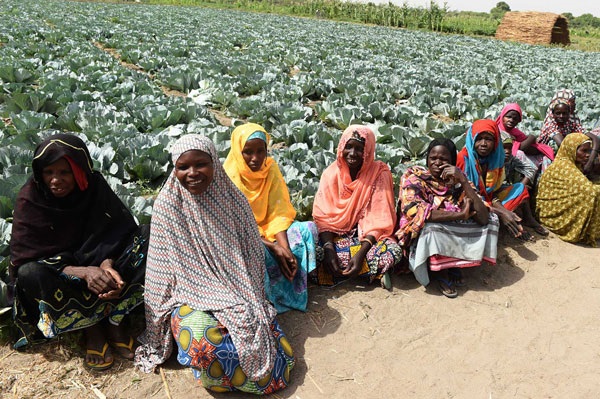
2nd All Africa Postharvest Congress and Exhibition
21/08/2019
September 17th – 20th, 2019 at the African Union Headquarters, Addis Ababa, Ethiopia
Postharvest Loss Reduction and Agro-processing: Drivers of Agricultural Transformation in Africa
Acknowledging the urgent need to address this global challenge, the University of Nairobi and a co...

Development of Voluntary Codes of Conduct on Food Loss and Waste Reduction
17/06/2019

Capitalization of Experience is Sub-Saharan Africa
07/06/2019
The Swiss Agency for Development and Cooperation (SDC) has been funding programs on postharvest management (PHM) in Sub-Saharan Africa (SSA) since 2008, following its successful POSTCOSECHA program in Central America that led to the adoption of m...

Government of Uganda, FAO, WFP, IFAD for the development of a comprehensive strategy to reduce PHL in grains
31/05/2019
Kampala - Key agriculture stakeholders in Uganda have commended national efforts towards addressing food and nutrition insecurity as well as increasing national income through strategies to reduce post-harvest losses in grains. The vote of confidence in the government was made...
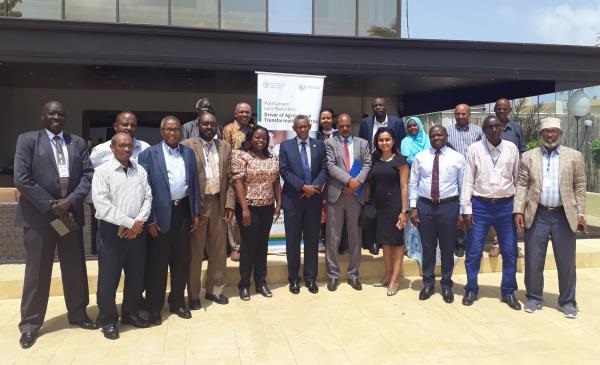
Post-harvest loss reduction for enhanced food and nutrition security in IGAD member states
11/03/2019

Climate change and post-harvest loss: APHLIS blog post
04/03/2019
Climate change is expected to have a profound impact on agricultural productivity, post-harvest losses and value chains. Climate change affects agricultural productivity both directly, by introducing changes in agro-ecological conditions (e.g. drought, variable precipitation, extreme weather e...

WFP Zero Food Loss Initiative January 2019 Update
07/02/2019
There are now over 335,000 families in 16 countries who have made the choice to join the WFP Zero Food Loss Initiative. Thanks to the hard work of a growing number of WFP Smallholde...
